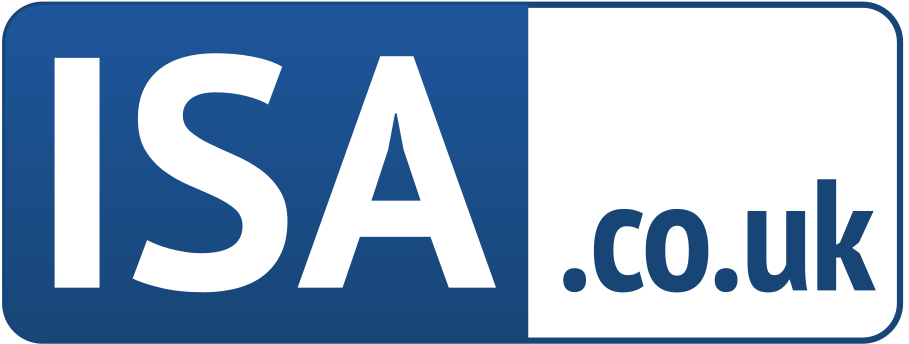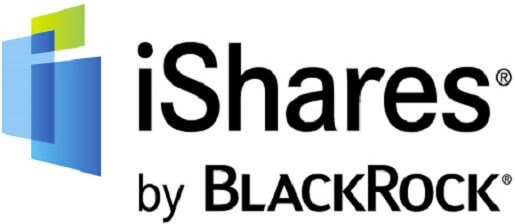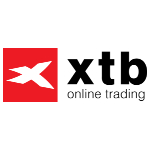Compare ETF ISAs
Pick the best ETF ISA to make the most of this year’s tax free allowance.
- Fund Choice: Choose from almost 5500 stocks & funds
- Invest From: £1
Good to know: Choose from almost 5500 stocks & funds. Free ETFs; No Lightyear execution fees on ETFs. Move interest into high interest Vaults; Earn interest from high interest Vaults. Money is invested into BlackRock Money market funds, currently paying 4.02% AER on GBP (as of 10th October 2025). Pricing: 0.10% fee on EUR and GBP interest (0.15% for USD). There would be ongoing execution/FX charges based on pricing – FX fees may apply. Capital at Risk. The value of investments can go down as well as up so you may get back less than you invested. This information is not a personal recommendation for any particular investment. If you are unsure about the suitability of an investment you should speak to an authorised financial adviser. Tax treatment depends on individual circumstances and all tax rules may change in the future
Show More- Fund Choice: Tracks FTSE 100 Index. Largest company shares in the index include, Astrazeneca, Glaxosmithkline, HSBC & Diageo. Capital at risk.
- Invest From: £25 pm
A super low cost FTSE 100 tracker ETF fund with a 0.07% pa annual charge. The product has a record of tracking its benchmark to a high degree of accuracy and scored ahead of rivals on this measure.
- Fund Choice: Tracks FTSE 100 Index. Companies in the index include AstraZeneca, NatWest, Standard Chartered & Diageo. Capital at risk.
- Invest From: £25 pm
Low cost tracker with a 0.09% pa annual charge. Provides exposure to the FTSE 100 index of the largest companies listed on the London Stock Exchange at a highly competitive price.
- Fund Choice: Choose from over 6900 instruments
- Invest From: £10
Good to know: Invest in real stocks with 0% commission (for monthly turnover up to 100,000 EUR (then comm. 0.2%, min. 10 EUR)). Over 6900 instruments including Stocks, ETF’s, Investment Plans, Forex, Commodities and Indices. Earn 4.5% interest on GBP uninvested funds. Applying for an account is quick and easy with a secure online form, and you could be trading within minutes. Multilingual customer support team is ready to help you – 24h hours a day from Monday to Friday. XTB is one of the largest stock exchange-listed FX brokers in the world with 1 million+ customers and over 20 years of activity in the financial markets. Capital at risk.
Show More- Fund Choice: Tracks the FTSE 250 Index. The fund invests directly in shares that make up the index such as Direct Line Group, Greggs & Morrisons. Capital at risk.
- Invest From: £25 pm
A low cost FTSE 250 tracker with a 0.12% pa annual charge. Tracks the 250 largest listed companies in the UK. A low cost way to invest in this area of the market.
- Fund Choice: Tracks S&P 500 Index. Passive fund that seeks to mirror as closely as possible the performance of the 500 largest companies by market capitalisation in the USA such as Apple, Google, Tesla, Berkshire Hathaway & Mastercard. Capital at risk.
- Invest From: £25 pm
This is a low cost S&P 500 tracker fund with a 0.07% pa annual charge. The Fund aims to track closely the performance of the 500 largest companies (i.e. companies with large market capitalisation) within the United States market.
- Fund Choice: Tracks MSCI China Index. The index is made up of the largest stock market-listed companies in China including Tencent, Baidu, Alibaba & China Construction. Capital at risk.
- Invest From: £25 pm
A low cost index tracker fund with an ongoing charge of 0.30% pa provides investors with exposure to the largest companies in China that make up the index.
- Fund Choice: Tracks the MSCI World Index. This index is a market cap weighted index of 1,585 companies throughout the world across 23 countries. Capital at risk.
- Invest From: £25 pm
One of the cheapest world equity exchange-traded funds available makes this a great way for investors to generate performance in line with the world’s major stock markets. This ETF seeks to track the performance of the MSCI World index, comprised mainly of large companies from 23 developed markets. Ongoing charges are 0.2%.
- Fund Choice: Tracks MSCI World Information Technology Index. Largest holdings of the index include Apple, Microsoft, VISA, NVIDIA and Mastercard. Capital at risk.
- Invest From: £25 pm
A low cost technology ETF tracker fund with an ongoing annual charge of 0.25%. Provides diversified exposure to global developed market equities that are constituent members of the MSCI World Index and part of the Information Technologies sector.
- Fund Choice: Allows investors to gain a simple cost efficient way to access the gold market. Capital at risk.
- Invest From: £25 pm
WisdomTree Physical Gold (PHAU) is designed to offer access to the gold market. The fund is backed by physical allocated gold held by HSBC Bank plc (the custodian). Only metal that conforms with the London Bullion Market Association’s (LBMA) rules for Good Delivery can be accepted by the custodian. Each physical bar is segregated, individually identified and allocated.
- Fund Choice: Tracks companies in the clean energy sector. Capital at risk.
- Invest From: £25 a month or any lump sum
Good to know: A member of the Interactive Investor ACE 40 ,this fund is passively managed by BlackRock and reflects the return of the S&P Global Clean Energy Index (the benchmark). The Index is designed to provide exposure to the leading publicily listed companies in the global clean energy business from both developed and emerging markets. The fund has reasonable ongoing charge of 0.65% pa.
Show MoreWhat is an ETF ISA?
ETFs (Exchange Traded Funds) are funds that track the performance of a specific index of stocks, such as the FTSE 100. They are traded on a live stock exchange, like a share, and have low ongoing charges compared to managed funds.
An ETF ISA is a Stocks and Shares ISA account that can hold ETFs. Not all ISA providers will be able to hold them as they are complex investments, and some may be able to hold a broader range of ETFs than others.
Along with varying charges and other accounts features, it is important to compare ETF ISAs before you decide which to choose.
How do ETFs work?
An ETF will purchase each share within a particular index, for example, the FTSE 100, meaning that the performance is directly linked to the performance of that index.
Each investment will have a weighting in line with the actual index to assure the accuracy of performance.
An ETC (Exchange Traded Commodity) will track a commodity instead of a share index. The value of anything from gold to oil, to coffee, can be tracked via an ETC.
Do ETFs pay dividends?
The underlying shares that ETFs hold will pay out dividends to shareholders in the usual fashion and the treatment of these dividends depends on the ETF type.
Like other funds, ETFs are categorised by either income or accumulation ETFs. Income funds will pay out dividends to shareholders, while accumulation funds will automatically reinvest the dividends into more share purchases.
What are leveraged ETFs?
Some ETFs will also apply leverage to the fund to increase the volatility of the holding. If a fund is leveraged by 200%, for example, then any movement in that index or commodity will be doubled in the performance of the fund.
This means that any gains and losses are multiplied by a factor of two. ETFs that use leverage are classed as sophisticated investments and you might need to complete a questionnaire to be able to hold them in your ETF ISA account.
In addition, some ETFs will ‘short’ an index or commodity (e.g., -200% leverage), which means that all returns are reversed and multiplied for that index. Make sure you read the product literature and fully understand the ETF before you invest.
What are the benefits of an ETF ISA?
1. Tax-efficient
Any investments you hold in a Stocks and Shares ISA are tax-free, so if your ETF investments increase in value, you will not have to worry about paying Capital Gains Tax when you sell them.
You also will not need to worry about paying income or dividend tax on the dividends generated by the ETF. If you hold an ETF outside of an ISA then you need to declare all of the income it generates on your tax return. With an ETF ISA, however, these are all tax-free.
2. Performance
Investing in ETFs can be very lucrative. They can significantly outperform the best returning Cash ISAs, particularly over the long term.
However, with potential returns come potential losses, and the risks are also a lot greater. Even the most experienced investors can lose money on ETFs, so you need to understand and be comfortable with the risks involved.
3. Lower Charges
Most ETFs have lower ongoing charges than managed funds because they require much less work to manage.
An ETF manager will still need to administrate the fund and make relevant trades to keep the ETF accurate. However, they do not need to hand-pick the investment themselves.
They do not need to research the market, ascertain risk weightings for certain investments, or even worry about the overall performance of the portfolio as a standard fund manager would.
For this reason, their ongoing charges are much lower than you would expect to pay for managed funds, but you do not get the assurance of an expert making investment decisions on your behalf.
When comparing the best ETF ISAs, you also need to think about your ISA charges as they vary from provider to provider. We will go into more detail about this later.
4. Cheap access to foreign exchanges
Say, for example, you want exposure to the NASDAQ in your Stocks and Shares ISA portfolio. If you wanted to buy some NASDAQ listed shares directly to hold in your account, you could face paying:
- Higher Exchange Rates
- Exchange Rate Commission
- Higher Dealing Fees for trading on foreign markets
However, if you buy an ETF that is listed on the UK stock exchange and tracks a particular NASDAQ index then you could avoid all of the above charges and still get exposure to the US stock market.
5. Diversification
If you want to invest in a particular sector or index but do not want all of your money sat with one company, then an ETF is a good way to spread your investments across that market.
Investing in one FTSE100 company is arguably much riskier than investing in all of the FTSE100 companies proportionately. Using an ETF can help you avoid putting all of your eggs in one basket.
What is the best ETF ISA?
As well as choosing the specific ETF(s) that you wish to invest in, you will need to decide on the best ETF ISA provider for you. The most important factors to consider when comparing ETF ISAs are:
Ongoing Fees / TER (Total Expense Ratio)
Your ISA will charge an annual fee for holding ETFs. This is usually in the form of a percentage of your total portfolio value. Some providers might have a higher percentage charge, but a maximum cap of say £200 per year, so make sure you look closely at the terms and conditions of each account.
Dealing Fees
Some providers will charge more for buying and selling ETFs than others. Depending on how frequently you will be trading, this could outweigh the ongoing annual charges.
Account Features
There are multiple ISA account features that are useful if you are trading ETFs, so you should think about which ones you want and check that your provider can facilitate them. Here are some of the key account features:
- Price Alerts – get notified about sharp price movements
- Stop Losses – automatically sell holdings at a certain price
- Limit Orders – automatically buy holdings at a certain price
- Regular Trader Discounts – pay less for trading more
- Watchlists – create a dummy portfolio to monitor without committing funds
- Research – exclusive news and insight on ETFs
How safe are ETF ISAs?
Some ETFs are arguably safer than others depending on what they track. However, this is part of what makes ETFs less safe than other investments. They are so varied and complicated that it can be easy for investors to misunderstand what they are investing in.
If an ETF tracks the FTSE100, this is a fairly stable index as it represents the 100 largest companies on the UK stock exchange. On the other hand, a smaller and more niche index is likely to be much more volatile and prices can fluctuate vastly in short periods of time.
This is why you need to be comfortable with potentially losing money, especially over the short term.
What are the alternatives to ETF ISAs?
Individual Shares
You can invest in shares of companies directly if you think a company will perform particularly well. However, you will have a more concentrated portfolio in comparison to an ETF that will spread your investment over many holdings.
Managed Funds
Actively managed funds are a similar asset class to ETFs in that they invest in a particular sector, index or geographical area. However, a professional fund manager will pick the underlying holdings based on a particular investment strategy, and will aim to outperform the benchmark for that market.
With the added expertise and management, you will pay higher management fees for this type of active fund compared to a passive fund like an ETF.
Some examples of managed investment funds are:
- Unit Trusts
- OEICs (Open Ended Investment Companies)
- Investment Trusts
Cash ISAs
Investing in a Cash ISA will give you the peace of mind that your investments cannot go down in value.
However, interest rates are currently so low that the returns available are not attractive to many investors. This is especially true when you factor in the negative effects of inflation on the value of your cash.
Frequently Asked Questions
Can I withdraw my money from an ETF ISA?
You can withdraw from an ETF ISA at any time. You will need to sell some or all of your ETF investments to fund your withdrawals.
How much can I contribute to an ETF ISA?
You can contribute up to £20,000 to an ETF ISA, which is the same as any other standard ISA. An ETF ISA is treated as a Stocks and Shares ISA, and you cannot contribute to more than one Stocks and Shares ISA in the same tax year.
Can my investments go down in an ETF ISA?
Yes, you can lose money in ETF investments as your holdings can decrease in value. Make sure you are aware of the risks before you invest.
How do I open an ETF ISA?
You can open an ETF ISA online, via your mobile app, on the phone, or via a posted form. You can contribute with a debit card, or via Direct Debit. Once you’ve committed your funds, you can then purchase your ETF investments.
Can I transfer my Cash ISA into an ETF ISA?
Yes. You can transfer your Cash ISA by completing a transfer form with your new ETF ISA provider. Be careful to check any transfer out fees incurred from moving away from your Cash ISA provider.
Can I have a Joint ETF ISA?
ETF ISAs can only be held individually.
Can I hold any ETF in an ISA?
If you are unsure if a particular ETF can be held in an ISA at all, you can check in the Key Investor Information Document (KIID) about whether it can be a stocks and shares ISA ETF.







